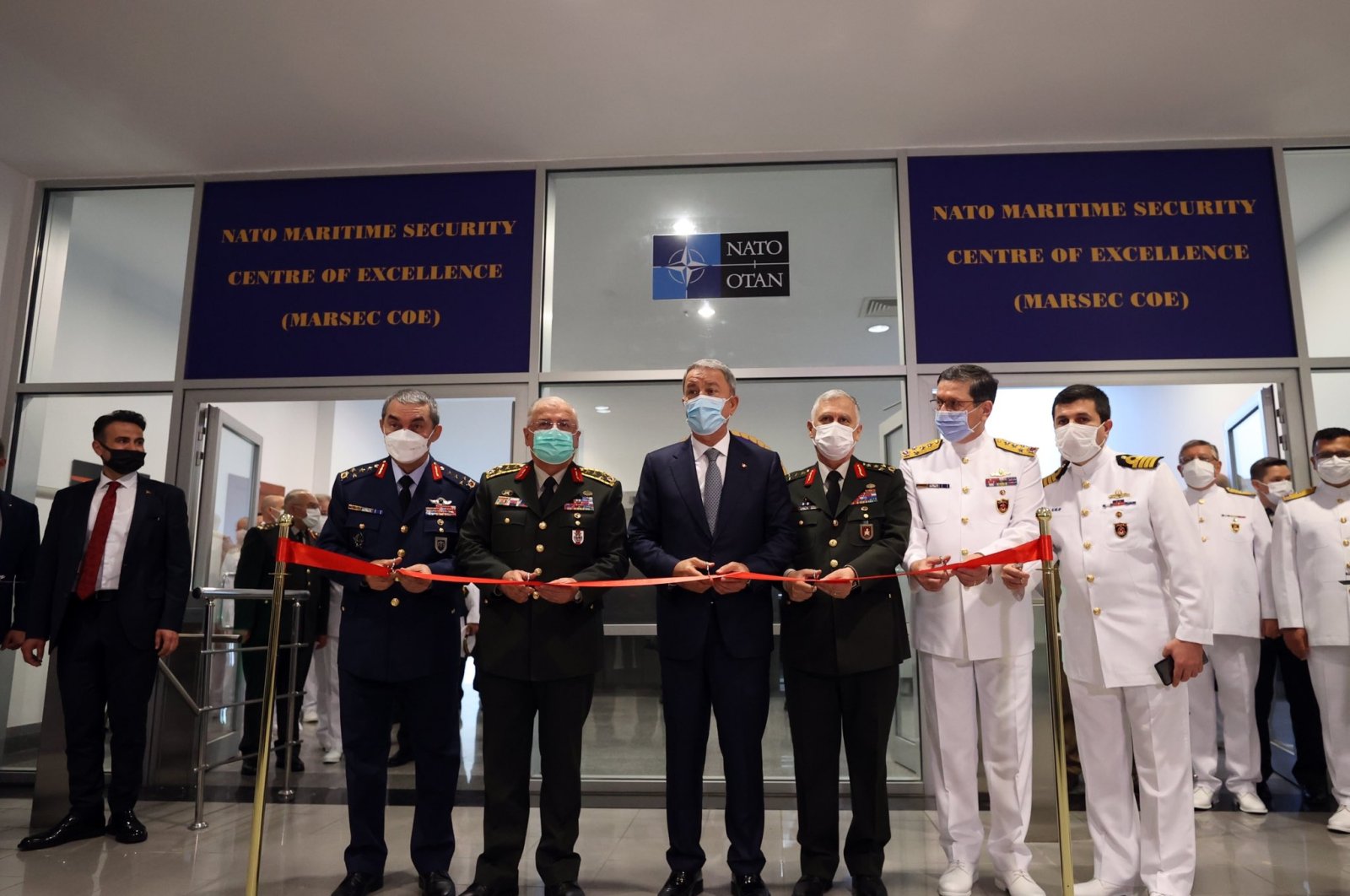
Turkey has been left alone in its fight against terrorism, Defense Minister Hulusi Akar stated, highlighting the country's contributions and importance to the trans-Atlantic alliance
NATO members have fought relentlessly against terrorist organizations in many parts of the world, but unfortunately, they have not shown the same resolve in taking on the PKK terrorist group and its Syrian wing, the YPG, Turkish Defense Minister Hulusi Akar said Friday.
"Turkey has repeatedly called on its allies to fight together against the YPG/PKK and Daesh terrorist organizations in northern Syria, which threaten our national security and regional stability," he said.
"Turkey is the NATO country that has shouldered the greatest burden to relieve the suffering of the Syrian people, and the Turkish Armed Forces are the only NATO army that has fought in close combat against Daesh," Akar emphasized at the opening ceremony of the NATO Maritime Security Center of Excellence in Istanbul.
"Time and again, we told our NATO allies about the need to create a safe zone in Syria. We even agreed on some plans, but the requirements of these agreements were not fulfilled and Turkey was left alone in the fight against terrorism."
The PKK is a designated terrorist organization in the U.S., Turkey and the European Union, and Washington's support for its Syrian affiliate has been a major strain on bilateral relations with Ankara.
The U.S. primarily partnered with the YPG in northeastern Syria in its fight against the Daesh terrorist group. On the other hand, Turkey strongly opposed the YPG's presence in northern Syria. Ankara has long objected to the U.S.' support for the YPG, a group that poses a threat to Turkey and that terrorizes local people, destroying their homes and forcing them to flee.
Under the pretext of fighting Daesh, the U.S. has provided military training and given truckloads of military support to the YPG, despite its NATO ally's security concerns. Underlining that one cannot support a terrorist group to defeat another, Turkey conducted its own counterterrorism operations, over the course of which it has managed to remove a significant number of terrorists from the region.
NATO must be strengthened
Akar said efforts to bolster NATO are necessary for the current global conditions.
"NATO maintains its raison d'etre and the alliance's importance is gradually increasing. That is why NATO needs to be further strengthened and function in the true spirit of an alliance," he said.
The Turkish official, however, emphasized that "NATO is more meaningful and stronger" today and "will move forward into the future with more confidence."
Reiterating that Turkey is NATO’s second-biggest army, Akar said Ankara puts NATO at the center of its own security by sharing the burden and values of the alliance and is at the same time at the center of NATO’s security.
Turkey is also among the top five countries to contribute to NATO’s forces, he added.
"Besides this, Turkey is among the top eight countries that contribute the most to the military budget with a rate of almost 2% of its GDP," Akar said.
"I want to emphasize that Turkey, despite being busy with the risks, threats and dangers in the region, continues uninterruptedly to contribute to the alliance’s exercises, force structure and cadres while doing what is necessary to protect NATO and Europe’s borders against terrorism, smuggling and human trafficking," he pointed out.
S-400 issue
On Turkey's purchase of the S-400 air defense system from Russia, Akar said Ankara is ready to address all technical concerns of its partners.
"We are open and transparent in all talks (on the issue). Reasonable and logical solutions are always possible," he asserted.
Ties between NATO allies Turkey and the U.S. were badly strained in 2019 over Ankara’s acquisition of the advanced S-400 air defense system, prompting Washington to remove Turkey from its F-35 Lightning II jet program. The U.S. argued that the system was incompatible with NATO systems and could be used by Russia to covertly obtain classified information on the F-35 jets. Turkey, however, insists that the S-400 would not be integrated into NATO systems and would not pose a threat to the alliance.
Back in December, the U.S. decided to impose sanctions on Turkey over the purchase of the Russian-made missile defense systems. Ankara’s proposal to create a technical working group on the issue was rejected by the U.S.
"Turkey’s contribution to NATO and NATO’s cooperation with Turkey is far more deep and comprehensive than the F-35s and S-400s," Akar stated.
He also pointed out that he spoke to his U.S. counterpart Lloyd Austin and discussed bilateral security and regional issues in a phone call on Thursday, saying that the call was "open, constructive and positive."
